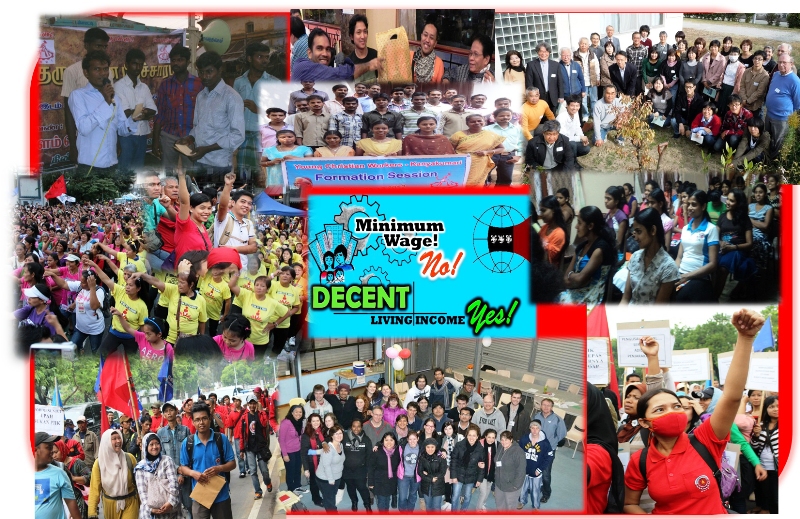 “In the world today, there is a wide gap between the decent life everyone is supposed to be entitled to and the difficulty we have to meet our most basic needs,” said the YCW Asia Pacific (ASPAC) team in a statement it has recently published.
“In the world today, there is a wide gap between the decent life everyone is supposed to be entitled to and the difficulty we have to meet our most basic needs,” said the YCW Asia Pacific (ASPAC) team in a statement it has recently published.
The ASPAC YCW mentions appalling statistics from international institutions. For instance, according to the World Bank, around 50% of the world population lives with less than US$2.50 a day while in Asia alone, even in the least industrialized countries, you need at least USD15 to 20 per day to meet basic needs. Around the world, 22,000 children die each day due to poverty. The ILO reported that about 5.1 billion people (75% of the world population) are not covered by adequate social security, while according to UN-Habitat, 2.6 billion people do not have access to adequate sanitation and 884 million people lack access to adequate sources of drinking water.
The Reality of Young Workers in Asia
The statement includes some testimonies from young workers in Asian countries.
“I am working in a construction field and I am a daily wage worker. I am 20 years old, yet I am the one responsible to take care of my family. I have 3 younger brothers and sisters whom I am supporting for their education and family food expenses. I receive a salary of PhP250/day (US$ 5). With this salary, we can’t even afford to have a good meal three times a day. There are days that we eat rice with magic syrup (artificial cooking powder), adding water in it.” - Jomarie Navarro, Philippines
"I am a factory worker in the Free Trade Zone in Biyagama, a city in Sri Lanka and I am 23 years old. I work in a garment factory as a sewer and I receive a salary of around LKR 18,000/month (US$145-150) including overtime. I work around 26-28 days per month. I work long hours and take no holidays because the salary is very low compared to the daily expenses. How could I save any money for my future?” Dinusha, Sri Lanka
“I am a young woman worker in a cashew nut factory and I am 23 years old. My salary is not fixed, it depends on the kilos of cashew nuts I produce in one day. I get INR 70-100 (US$ 1.20-1.80) per day. Every day I need to work from 8:00 AM until 6:00 PM, otherwise my income for the day will decrease. I don’t have the right to speak about my work or my salary with my co-workers, we don’t have holidays, and we often cannot even rest.” - Kalai Selvi, India
“I am 21 years old and at the moment I am studying at university. My dream is to finish my university studies and to get a good job in the future. I believe that education prepares us for the future, but my family cannot pay for my studies because my parents have very low income.” – Johan, Philippines
The Analysis of the ASPAC YCW
While globalization creates opportunities for a few, the above data clearly show that many live in misery. Young workers remain vulnerable. With the global crisis at hand, many young workers remain jobless, are fired, or work for a very low wage. Incomes are increasingly falling; wages become only a tool for workers to survive, not to let them live decently.
The ASPAC YCW demands a Decent Living Income (DLI) for young workers and for all workers. This is a fundamental principle of social justice and some provisions in the Universal Declaration of Human Rights specify that no one should live below a certain income level and everyone should at least have access to basic social services.
The DLI is strongly related to the IYCW Just Work & Social Protection Campaign, to the ILO Decent Work Agenda, and to the Millennium Development Goals to combat poverty, deprivation and inequality.
The ASPAC IYCW defines the components of the DLI as follows: right to adequate food, right to adequate clothing, right to adequate housing, right to quality education, and right to social security and social services.
Without all these components, poverty will always prevail. Low incomes generate health problems and malnutrition, low education, bad housing conditions, and social discrimination.
These components of the DLI are actually universal rights enshrined in the constitutions of various countries.
Young Workers Demand Change!
More specifically, the ASPAC YCW wants higher wages, a decent living, and a decrease in the prices of basic commodities; legal protection for young workers in the informal economy; the creation of new jobs for the unemployed; employment security through government policies ensuring full employment as a fundamental right for all; protection from unfair dismissals; occupational health and safety by limiting working hours, creating a safe environment, establishing regulations on night work, etc.; enforcement of statutory minimum wage; training programs for the workers through vocational training centers; equal treatment of men and women in relation to salary, access to social protection, employment promotion, training and access to resources; enforcement of policies and laws to promote gender equality; the right to get organized as trade unions and organizations to represent the workers.
The ASPAC YCW calls all stakeholders, international bodies, unions, employers, governments, as well as the Church, to work hand in hand, to promote international solidarity, and say YES to a Decent Living Income for all!
Minimum wage, NO! Decent living income, YES!

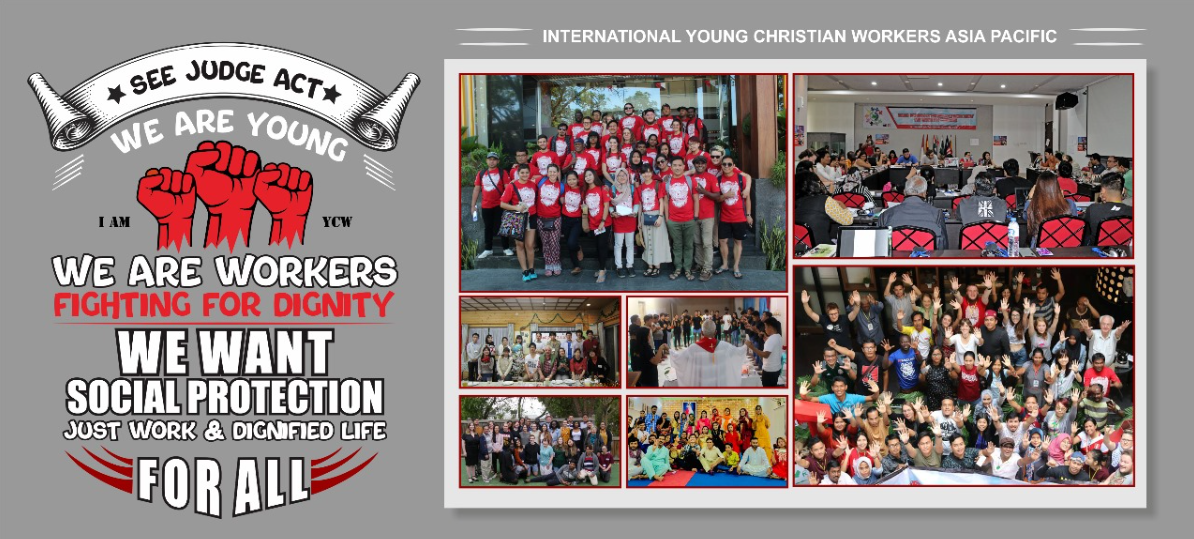
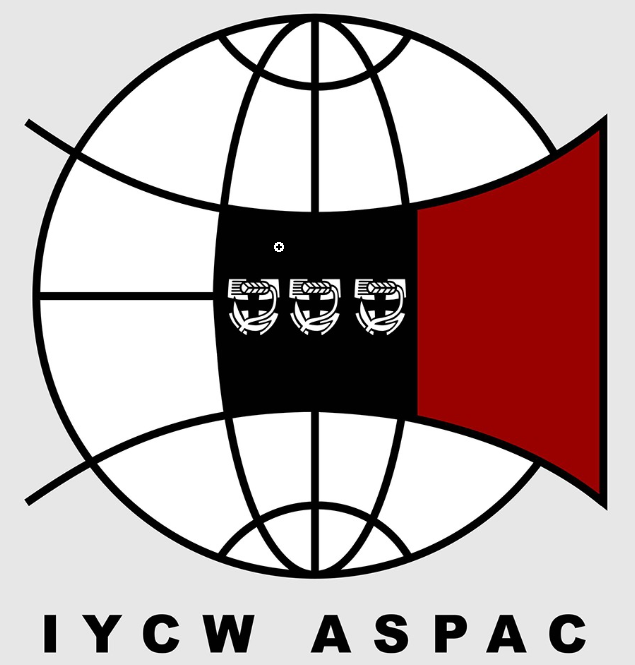

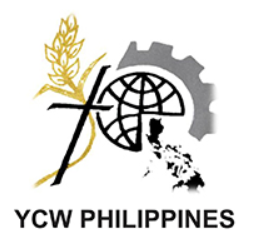
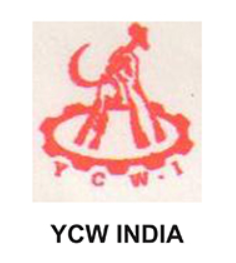
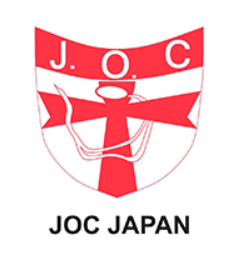
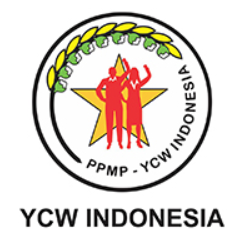
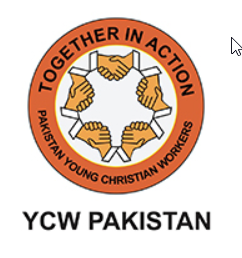

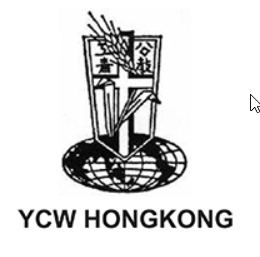

 English
English  Español
Español  Français
Français